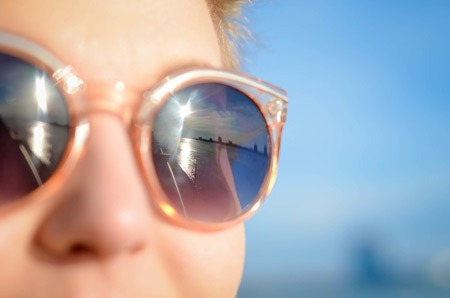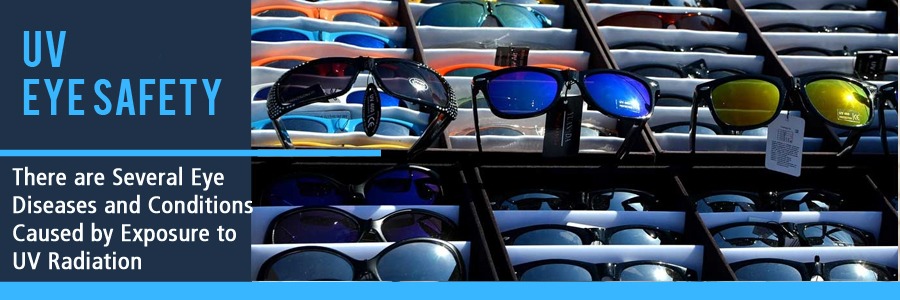
Personalized Eyewear Consultation by Appointment Only (215) 443-7706
- Home
- About
- Products
- Services
- Lens Lab
- Vision Care
- Newsletter
- Contact Us
Menu- Home
- About
- » Doug Wohl
- » Awards
- » Reviews
- Products
- » Bifocals
- » Computer Glasses
- » » Computer Vision Syndrome - Digital Eye Strain
- » Contact Lenses
- » » Are Contacts Right For You
- » » Guidelines for Contacts Wear and Care
- » » Instructions for Soft Contacts
- » Eyeglass Frames
- » » Frame Guide - Frame Shape and Face Shape
- » » Frame Materials
- » » Eyewear Maintenance
- » » Makeup Tips When Wearing Glasses
- » » Wiley X Eyewear Frames
- » Children Eyeglasses
- » » Eyewear for Babies and Young Children 0-5 Years Old
- » » Kids Corner
- » » 10 Tips for Buying Glasses for Children
- » Occupational Eyeglasses
- » Prescription Lenses
- » » Lens Coatings and Tints
- » » » Anti Reflective Coating
- » » Replacement Lens Options
- » Progressives
- » Readers
- » Safety Glasses
- » » Eye Injuries that Could be Prevented with Safety Glasses
- » » Prescription Safety Eye Glass Feature Guide
- » Single Vision Eyeglasses
- » Sports Eyewear
- » Sunglasses
- » » UV Eye Safety
- Services
- » Eye and Vision Exam
- » » Eye and Vision Problems
- » » Glaucoma Test
- » » Vision Refraction
- » Contact Lens Exam and Fitting
- » Eyeglass Repair
- Lens Lab
- Vision Care
- » Cornea
- » Detached Retina
- » Diabetic Retinopathy
- » Dry Eyes
- » Eye and Vision Conditions
- » Fun Eye Facts
- » Eye Function and Parts Explained
- » FAQ
- » Macular Degeneration
- » Makeup Causing Eye Damage
- » Medication Side Effects to Vision
- » Optic Nerve Damage
- » Optical Terms and Definitions
- » Red Eye
- » Retina Damage
- Newsletter
- » Blue Light Blocker Glasses
- » Buying Glasses Online
- » Covid-19 Safety Practices
- Contact Us
How Does UV Light Affect Eyesight?
Both long-term and short-term exposure to UV radiation can harm the eyes, affect vision, and compromise overall eye health.
There are several eye diseases and conditions caused or aggravated by exposure to UV radiation, such as:
- Macular Degeneration. Macular Degeneration (AMD) is caused by damage to the retina over time and is the leading cause of age-related blindness. Extended exposure to UV light increases your risk of developing macular degeneration.
- Cataracts. A cataract is a clouding of the eye’s natural lens -- the part of the eye that focuses the light we see. UV light, especially UV-B rays, increases your risk for certain types of cataracts. It is estimated that 10% of all cataract cases are directly attributable to UV exposure.
- Pterygium. Often called “surfer’s eye,” pterygium is a pink, non-cancerous growth that forms on the layer of conjunctiva over the white of your eye. UV light from the sun is believed to be a factor in the development of these growths.
- Skin Cancer. Skin cancer in and around the eyelids is also linked to prolonged UV exposure.
- Photokeratitis. Also known as corneal sunburn or “snow blindness,” photokeratitis is the result of high short-term exposure to UV-B rays. Long hours at the beach or skiing without proper eye protection can cause this problem. It can be very painful and may cause temporary vision loss.
UV Light Reflected Off Surfaces Damages Your Eye
Do you take precautions before enjoying the outdoors? Do you wear sunglasses on cloudy days? You want sunglasses that block at least 99 percent of both UVA and UVB rays

UV Rays Wreak Havoc On Your Eyes
We know the UV rays from the sun damages your skin, but your eyes will be damaged in the same way if not protected properly. Lack of eye protection from the sun can lead to several problems from vision loss to cataracts. Your eyes will sunburn. The severity of your eye damage depends on how much exposure your eyes have had in the sun. Eye issues like cataracts, skin cancer of the eyelids and melanoma in the retina are all possible risks from sun-damaged eyes.
The outer eyeball layer, known as the cornea, is similar to the outer layer of skin. When it is burned by the sun's rays, the cornea becomes inflamed -- an effect called keratitis -- which can be quite painful and, as in Anderson Cooper's case several years ago; it caused temporary blindness. For someone like Cooper, who has light irises, there is a higher risk of burns.
Protect Your Eyes from UV Rays
Ok, so now that you know the importance of eye protection, because of the damage the UV rays from the sun can do to your eyes, we want to make sure you really know the best methods to protect your eyes from the sun. Sunglasses are essential for eye protection from the sun. Experts suggest that when looking for sunglasses you look for lenses that protect against UVA and UVB rays – these are the two types of rays that tend to do the most damage to eyes. Of course, we realize that you want to look great in your sunglasses and they are a fashion accessory – don’t sacrifice function and protection for style.
Wearing sunglasses helps, but you can still have some damage if you don’t have the proper UV protection in your sunglass lenses. We also suggest wearing hats to protect your eyes. Sunglasses do a lot of the work, but if you really want to take your eye protection seriously adding a hat that helps to cover your eyes from the sun’s rays will give you that bonus and keep those rays off your eyes. Keep in mind that hats with brims offer no protection from UV rays reflected UP from surfaces such as pavement, sand and water. Also, keep in mind that the darkness of your lenses has no effect on UV protection.
About Wohl Optics Vision Care
Proper eyewear prescription AND fit are vital for your best vision. Fit is something that you will never get right with an online optical business. Veteran owned and operated - best in Bucks County Optical eye care shop.
How could your vision be better? What situations do you feel give you trouble when wearing eyeglasses? That is why we are here.
Exclusive Discounts
Military, Veterans, First Responders, Police, Firefighters, Ambulance all receive exclusive discounts (not combined with insurance or other discounts).
We accept most major Vision Insurance Plans.
(215) 443-7706 Phone
(215) 443-8795 FaxWohl Optics
550 Street Rd.
Warminster, PA 18974Veteran Helping Veterans - Local Bucks County, PA Independent Optician

Copyright © 2016-2022
All Rights ReservedCredit Cards Accepted

Private Consultations for your Family: Flexible hours at your convenience by appointment ONLY
Wohl Optics Regular Schedule:
Monday 10:00AM - 5:00PM Tuesday 10:00AM - 4:00PM Wednesday 10:30AM - 6:00PM Thursday 10:30AM - 7:30PM Friday 10:00AM - 6:00PM Saturday 10:00AM - 1:00PM We are offering personal appointments to everyone for the selection of eyeglasses and eyeglass adjustments. We will make every effort to accommodate your schedule. Let us know if you would like to meet at Wohl Optics outside of the above regular scheduled hours.
Service Areas
Bucks County, PA; Montgomery County, PA; Chester County, PA; Philadelphia, PA; Warminster, PA; Ivyland, PA; Warrington, PA;Furlong, PA; Warrington, PA; New Hope, PA; Southampton, PA; Bensalem, PA; Northampton, PA; Hatboro, PA; Willow Grove, PA; Huntingdon Valley, PA; Horsham, PA; Lansdale, PA; Montgomeryville, PA; Newtown, PA; Langhorne, PA; Lahaska, PA; Buckingham, PA; Yardley, PA; Chalfont, PA; Richboro, PA; Doylestown, PA; Glenside, PA; Ambler, PA; Fort Washington, PA; Churchville, PA; Norristown, PA; Washington Crossing, PA; Philadelphia, PA.
Wohl Optics 550 Street Rd. Warminster, PA 18974 (215) 443-7706 Privacy Policy HIPAA Sitemap
